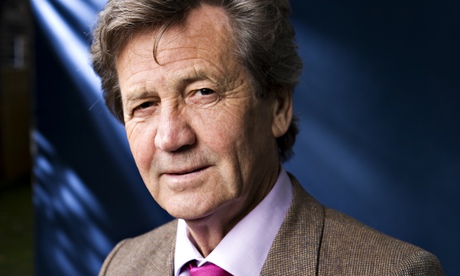
Stop mocking the working class, the veteran arts presenter and novelist Lord Bragg has urged writers and television producers.
"I'm not a fan of the working class being mocked, including by some of our famous writers … even by those who came from it," he said, in an interview with the Radio Times. "All this 'it's grim oop north' sort of stuff. Well, it was a joke once, but we've got to the stage where the working class has been turned into a cliche and it deserves a lot better."
Bragg didn't name the "famous writers", but said, even if working-class characters were presented as intelligent and educated, this was seen as extraordinary.
His own working-class childhood, as the son of a publican in the north-west, had the library for books and the radio for drama: "We listened to a lot of drama, adaptations of books, comedy. There was a real love of music expressed in choirs, because you didn't have to have instruments except your voice. We lived in a very cultured environment."
At 74, Melvyn Bragg, who was given a peerage by Labour in 1998 as Baron Bragg of Wigton, is still working ferociously, presenting In Our Time for Radio 4 and the South Bank Show for Sky Arts, as well as turning out a book most years.
Although he has mined his family background in his novels, there would be no memoir, he said: "I haven't kept a diary. I couldn't write a memoir to save my life. I'd get stuck saying constantly, 'Is that right?'."
The issue of culture and class has hit the headlines in recent days.
In his first major speech, delivered in Bristol last week, the new culture secretary, Sajid Javid, whose only previously known arts engagement was a love for Star Trek, said too many Britons were culturally disenfranchised.
The son of Pakistani immigrants, he said mainstream arts had not been part of his upbringing.
"For a bus driver's son in that world, the idea of popping along to the Donmar Warehouse – or even the Bristol Old Vic – to take in a cutting-edge new production was simply not on the agenda. It wasn't what people like me, people from my background, did."
In a speech in London on Monday, shadow culture secretary, Harriet Harman, warned that a future Labour government would require state-funded arts organisations to prove they were extending their reach beyond a metropolitan elite.
She said she rarely saw anyone from her south London constituency at the annual BBC Proms in the Albert Hall, and singled out her recent visit to the Royal Opera at Covent Garden: "Even from the cheapest seats in the house, I couldn't see in the audience anyone who wasn't like myself: white, metropolitan and middle-class."
• This article was amended on 10 June 2014. It mistakenly attributed a quote from the film-maker Ken Loach to Melvyn Bragg. This has been removed.

